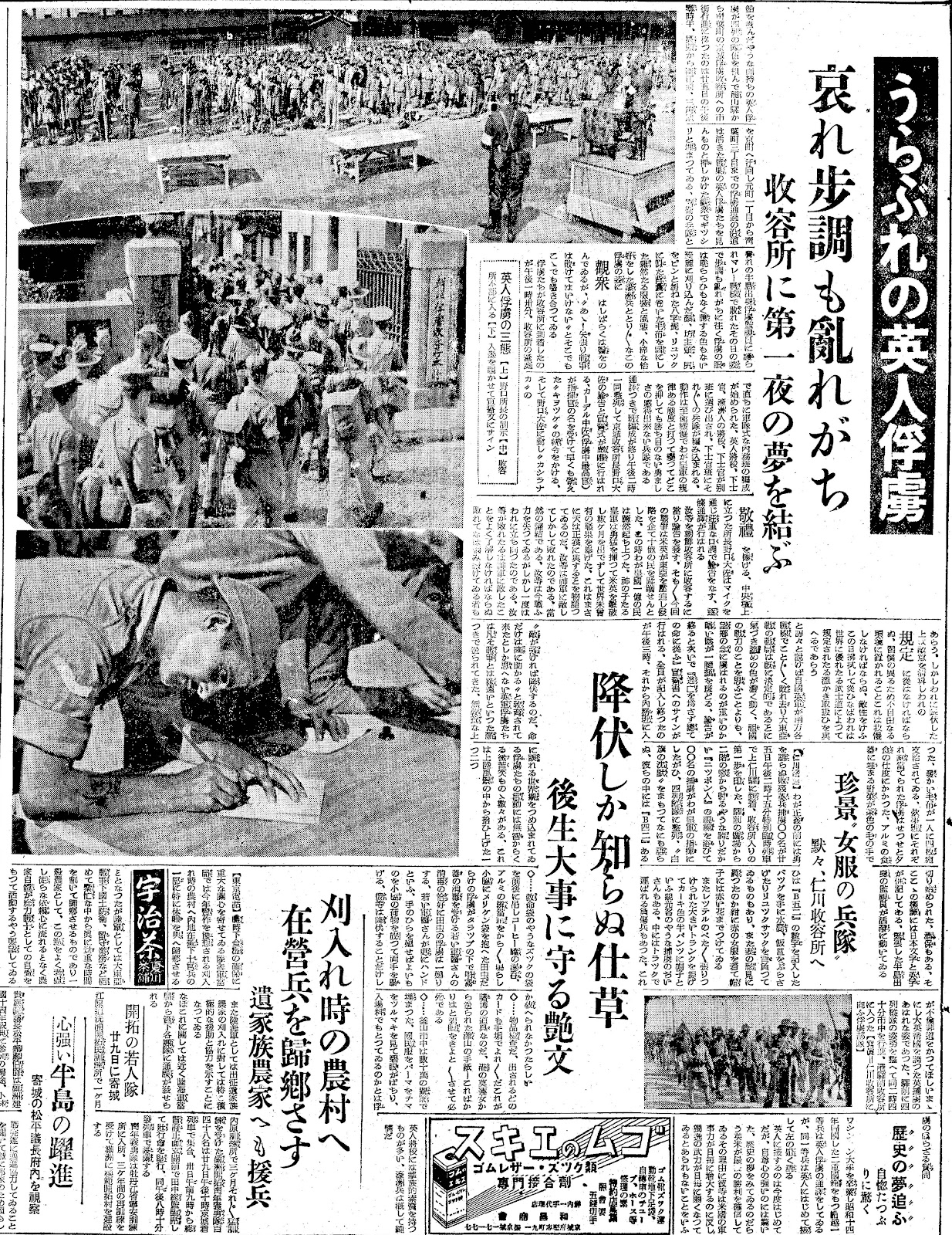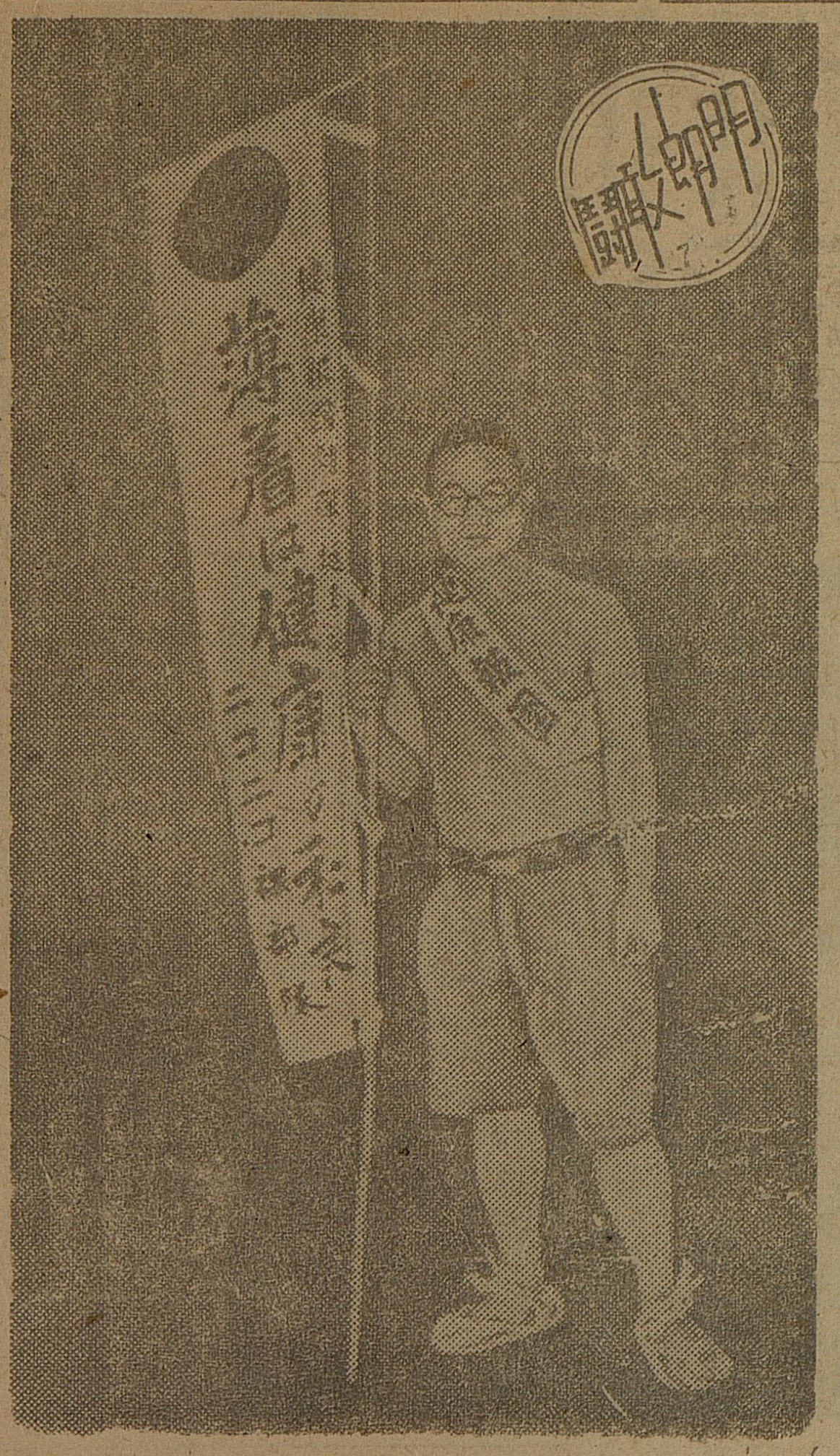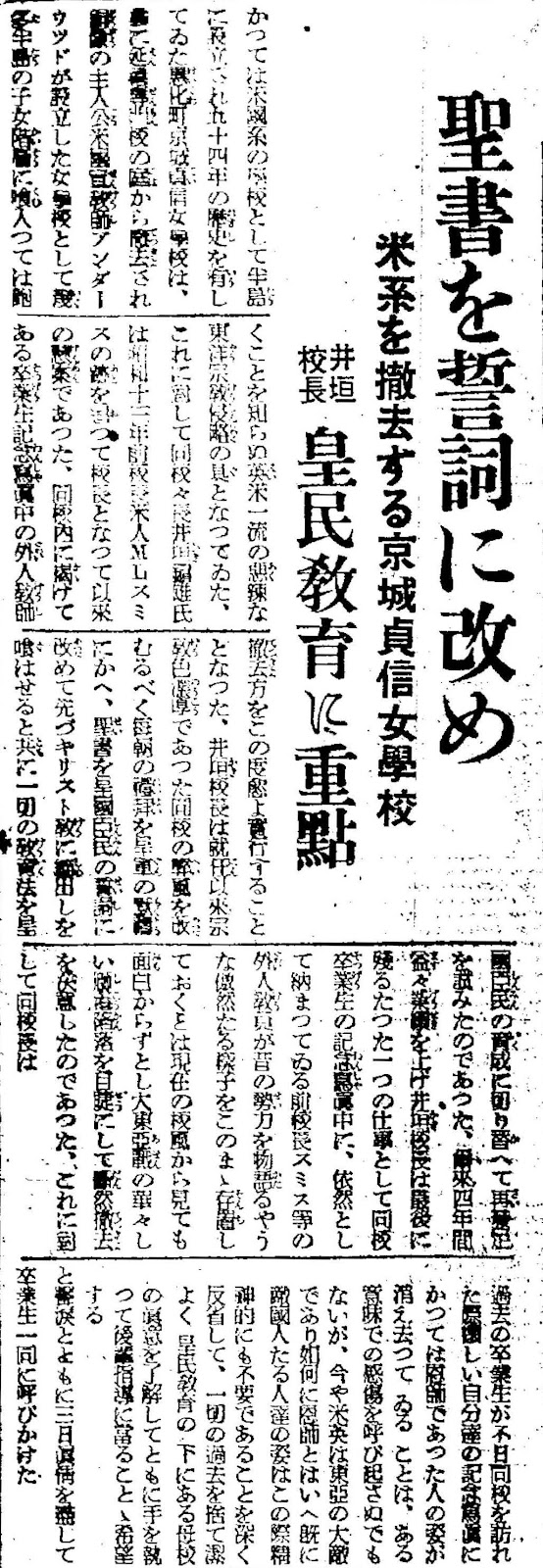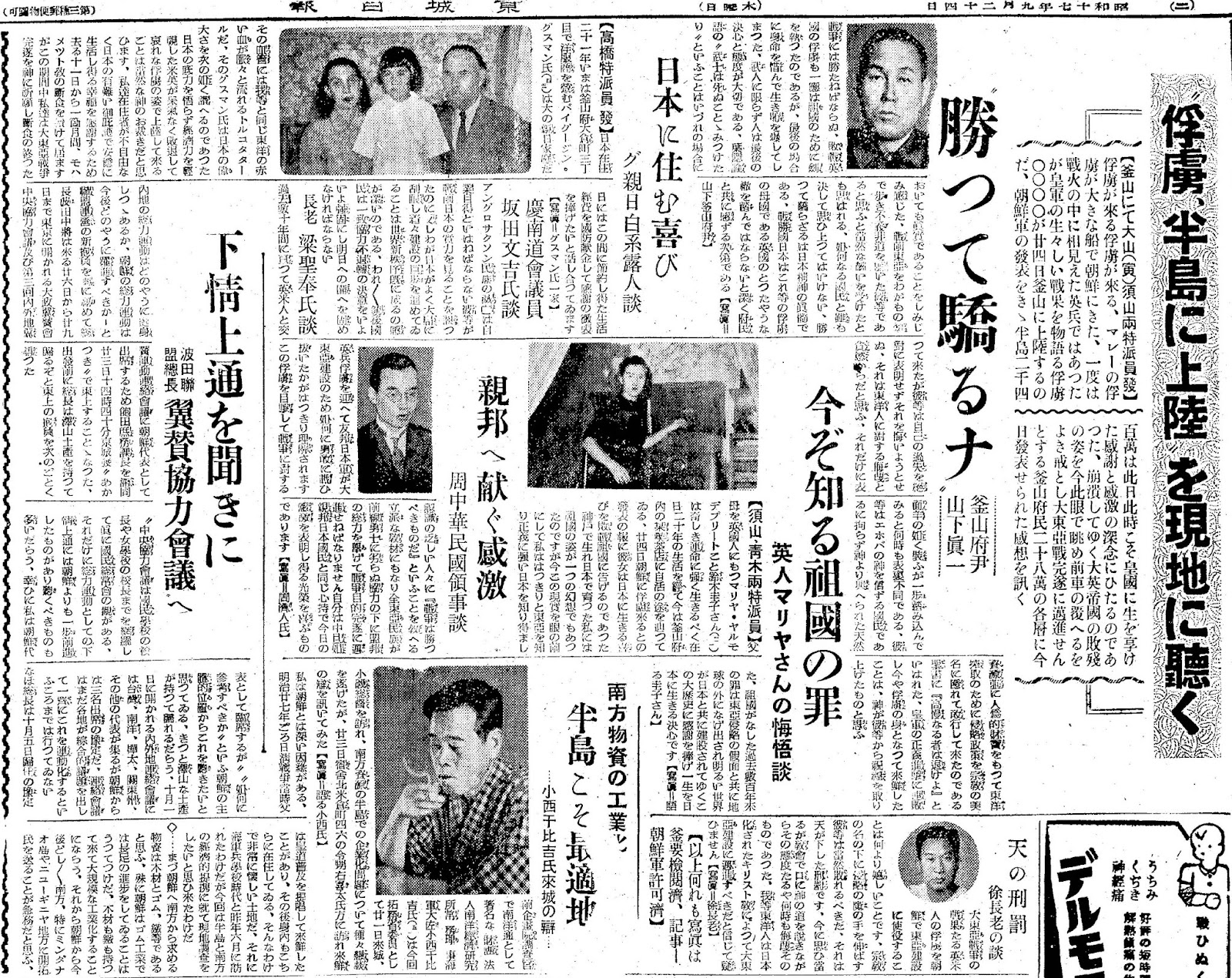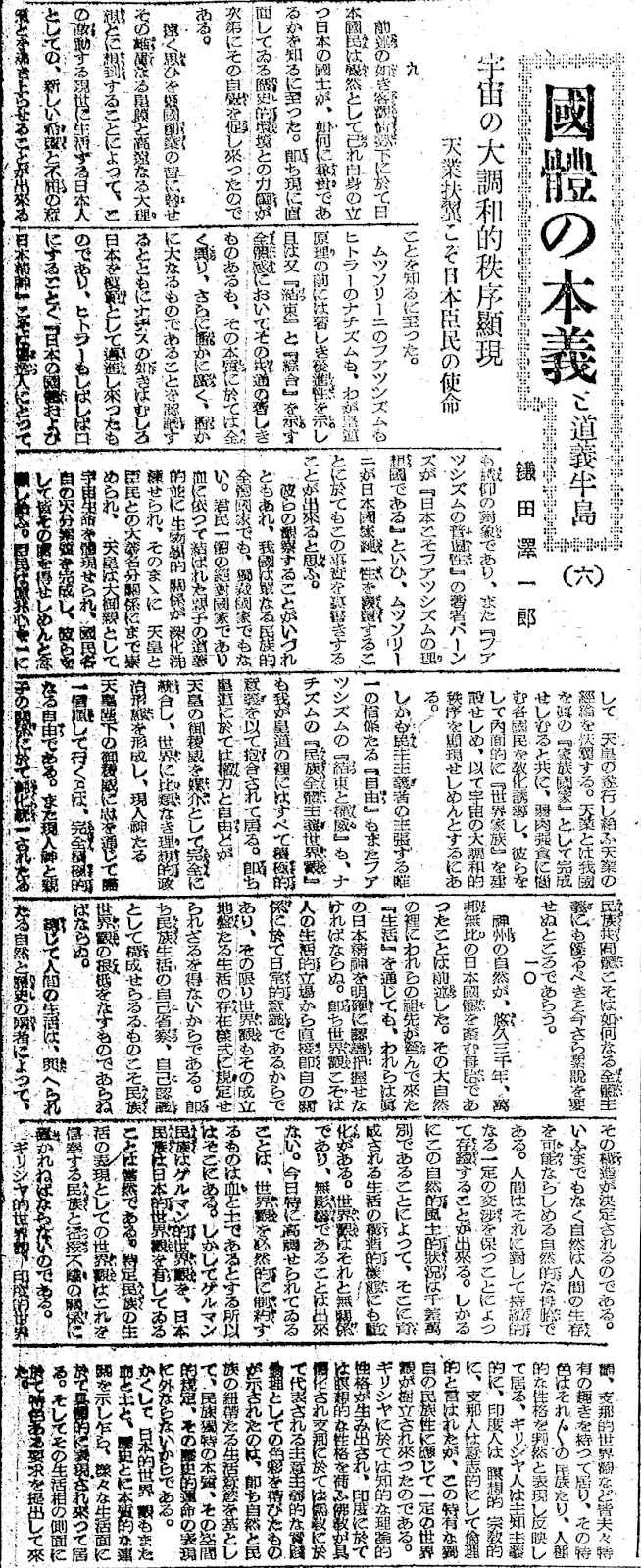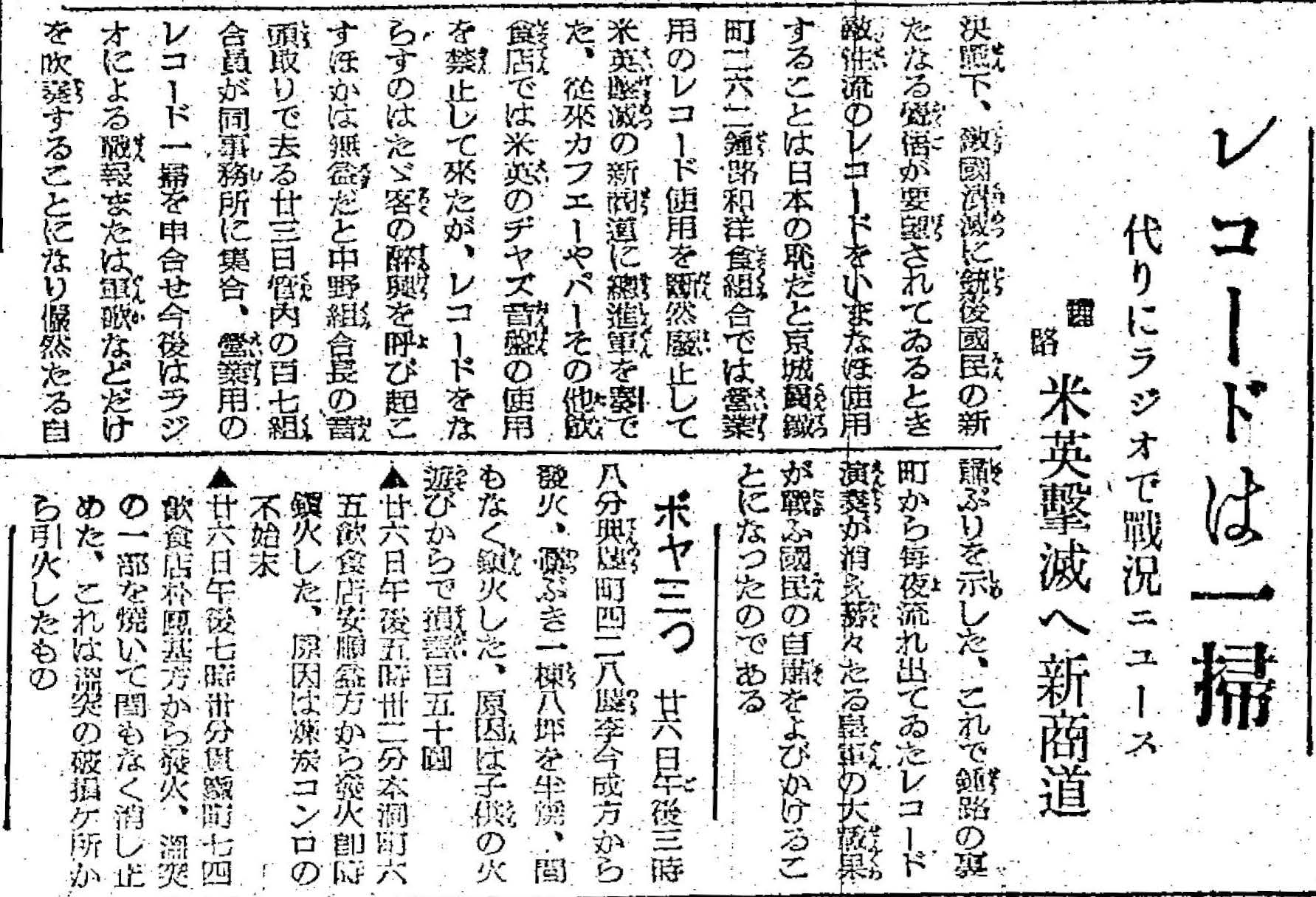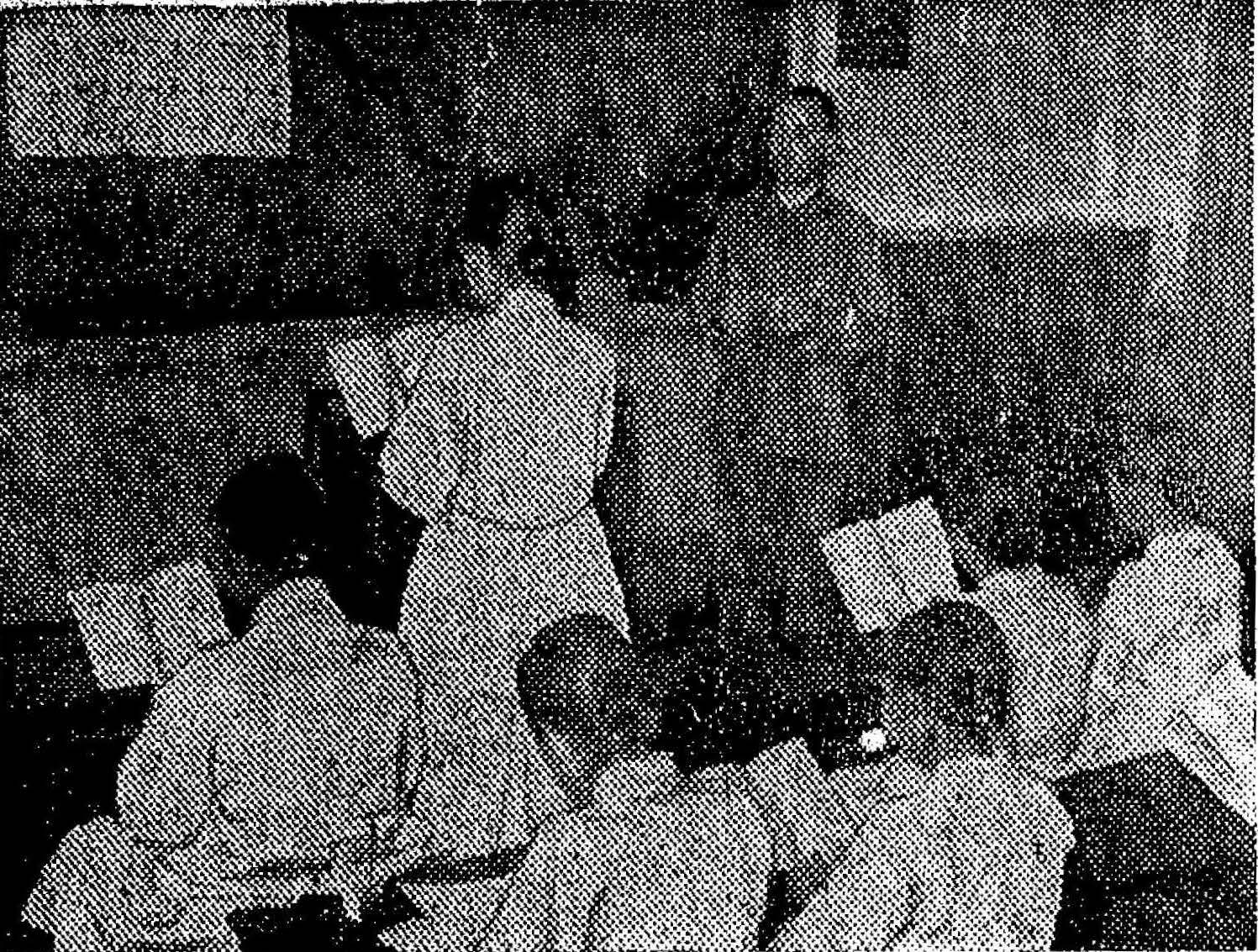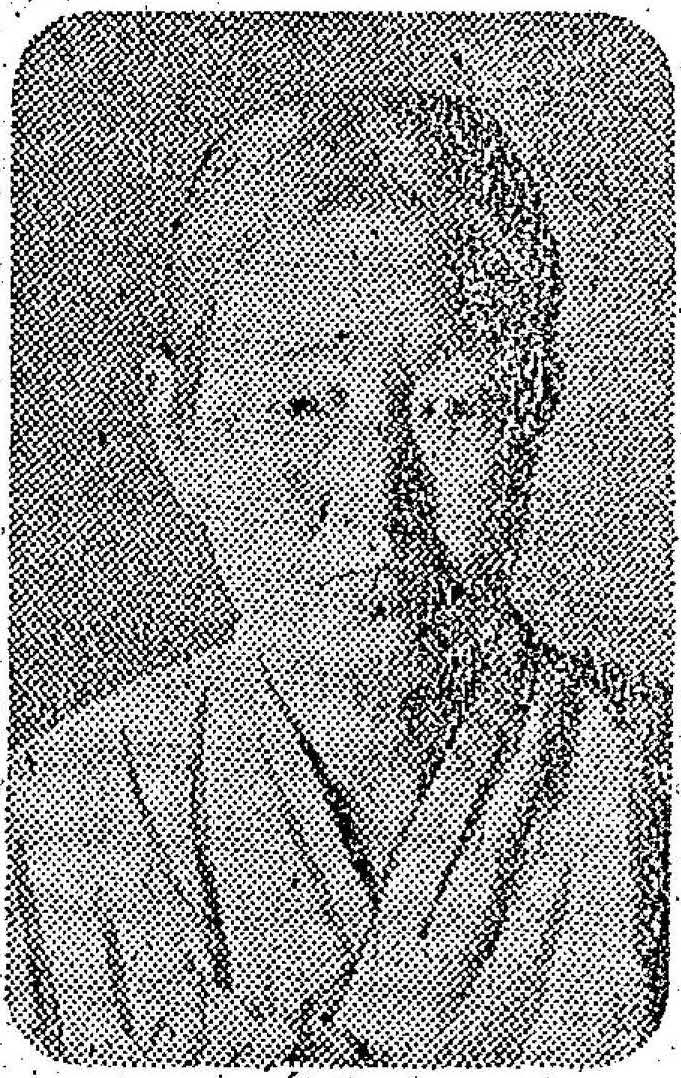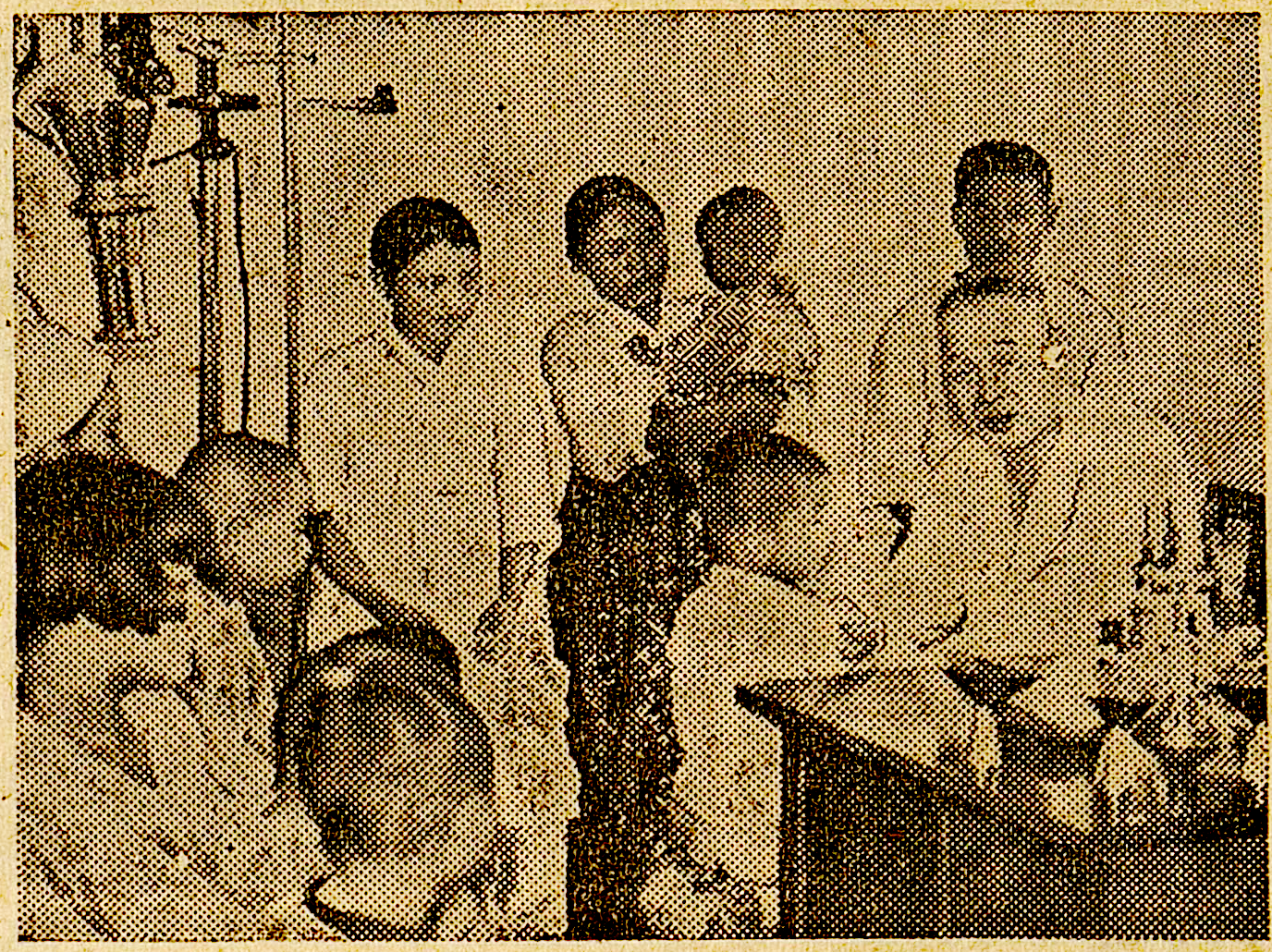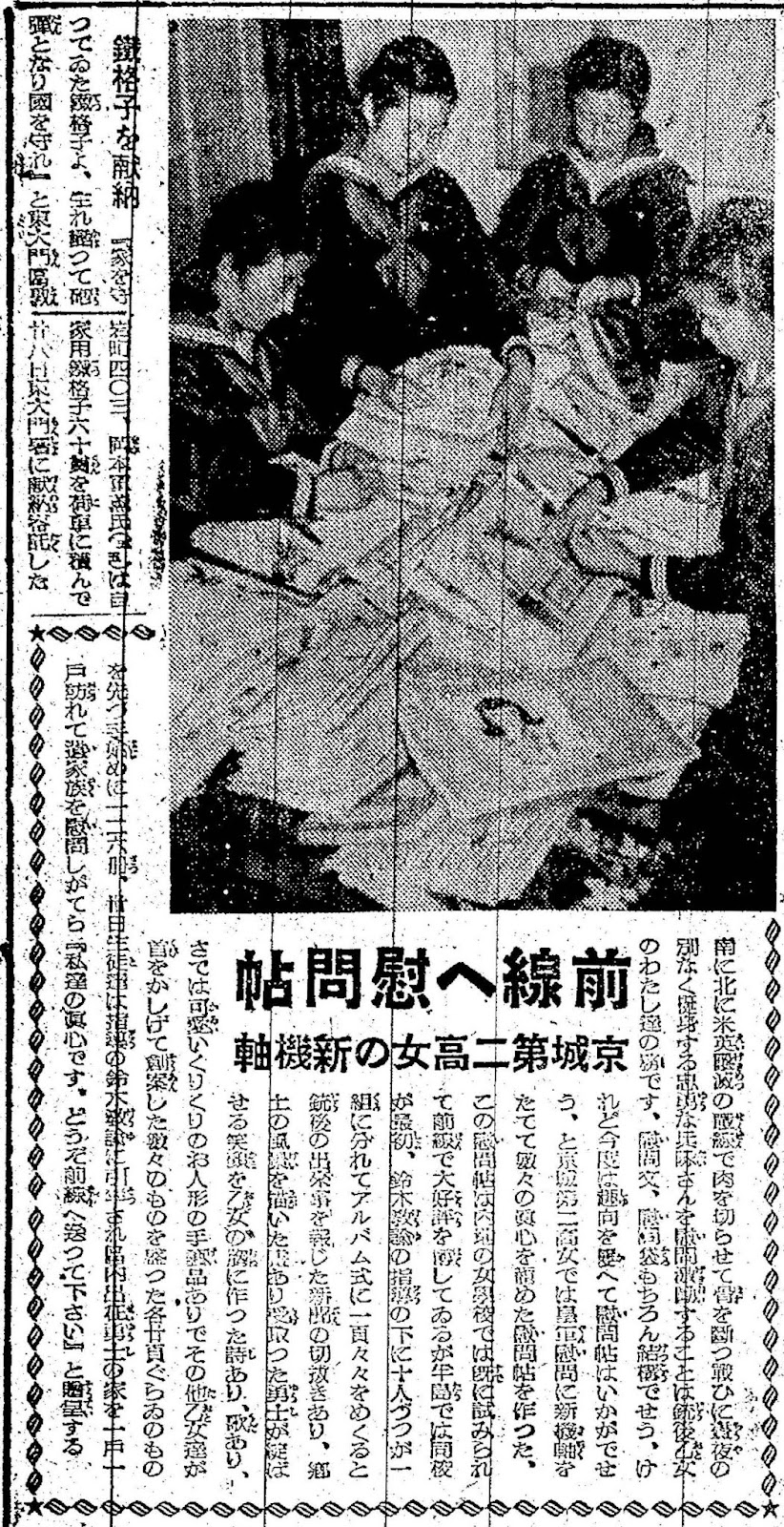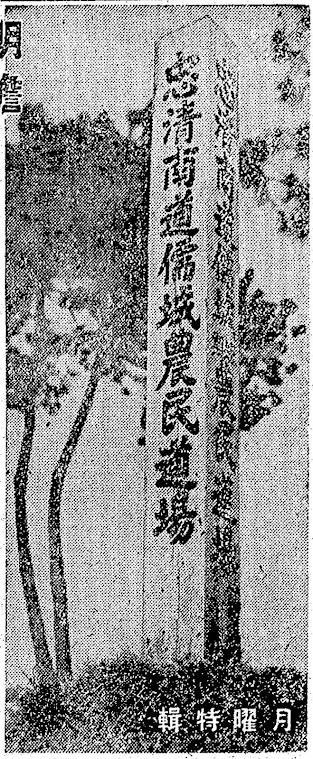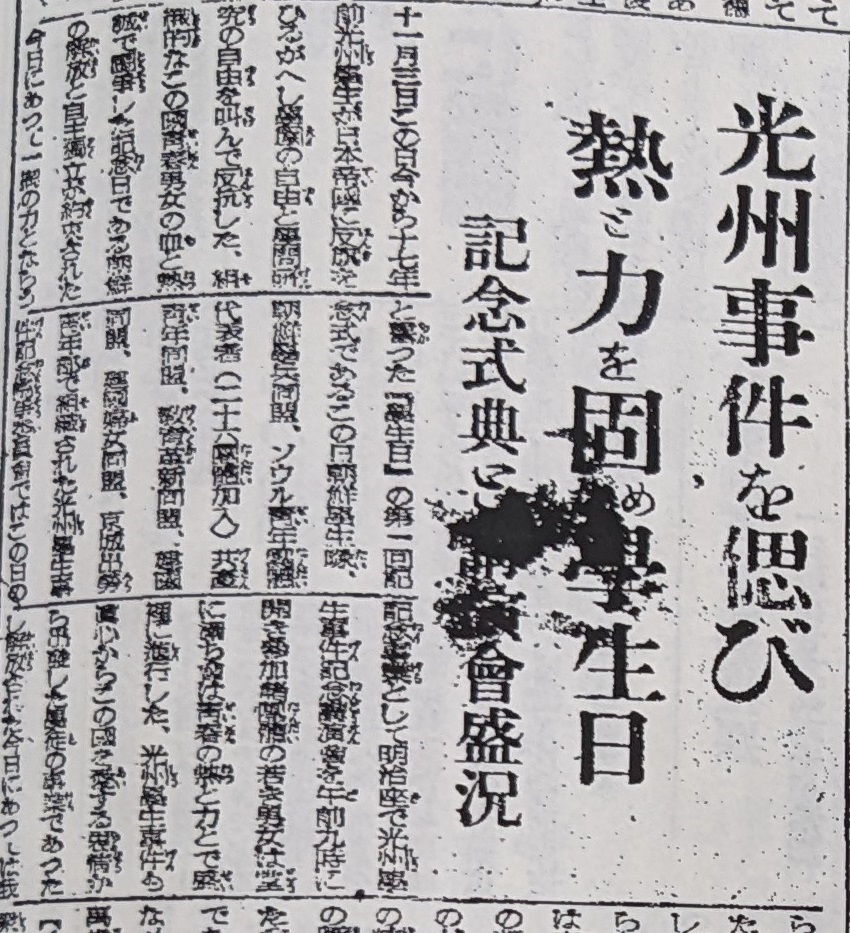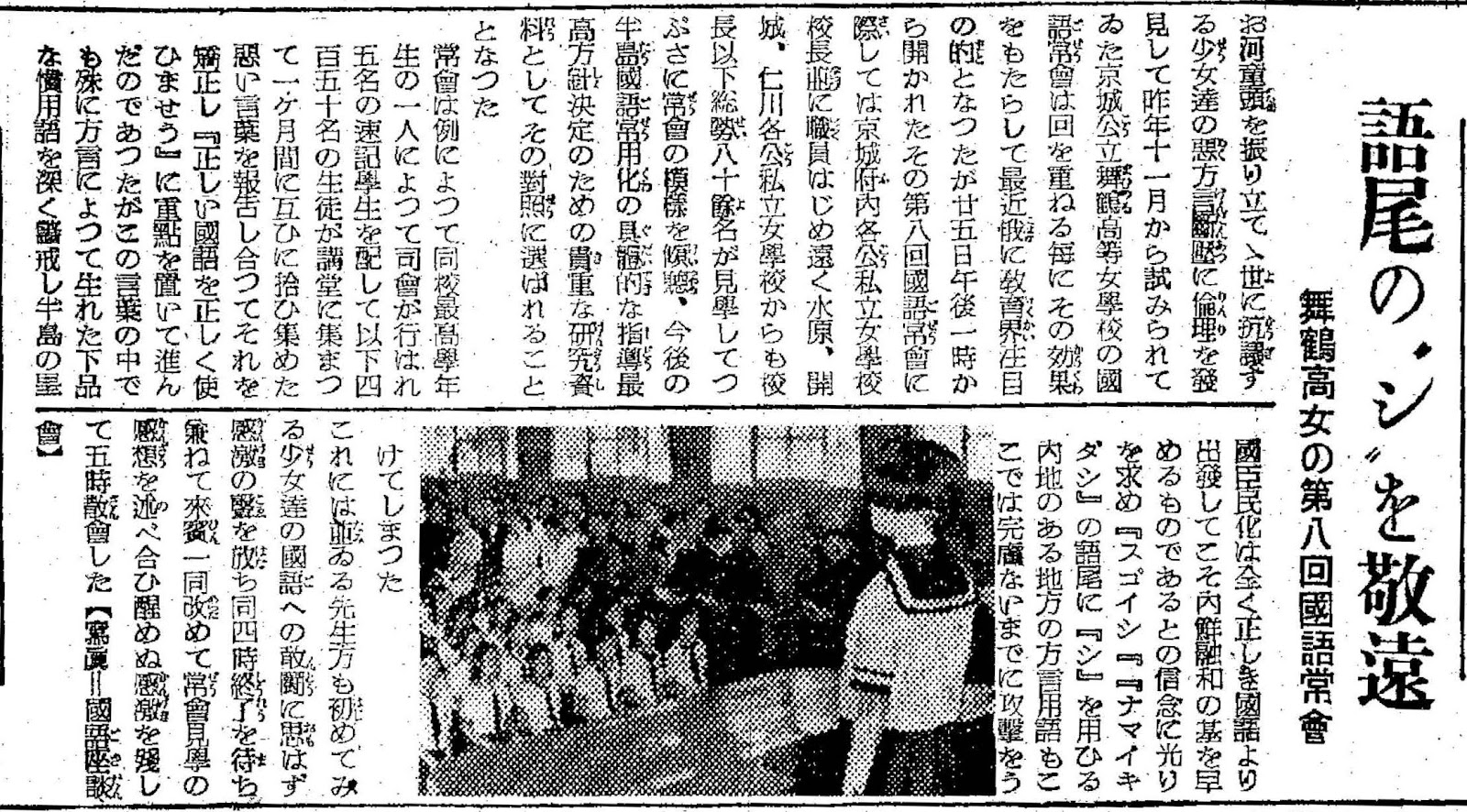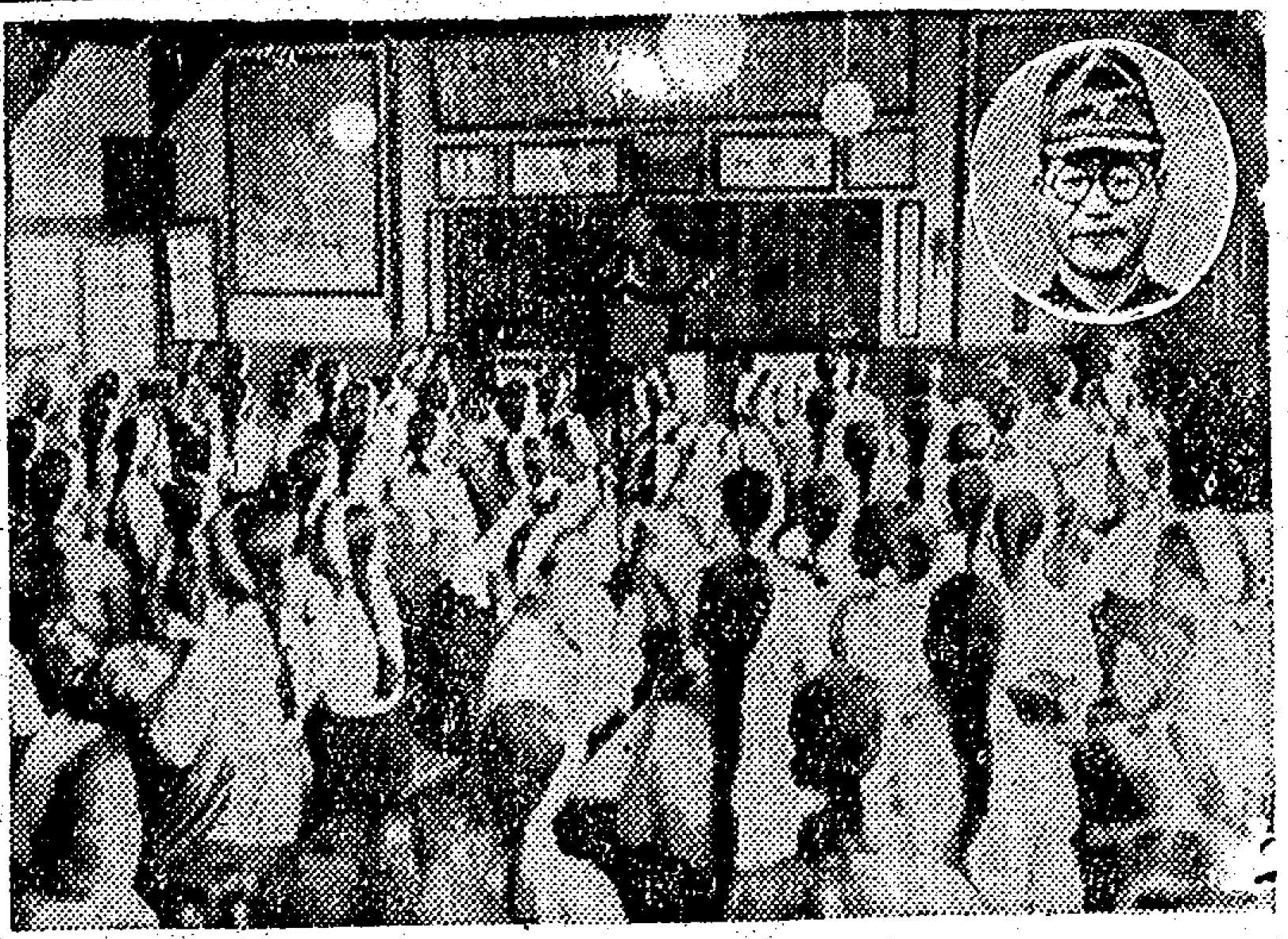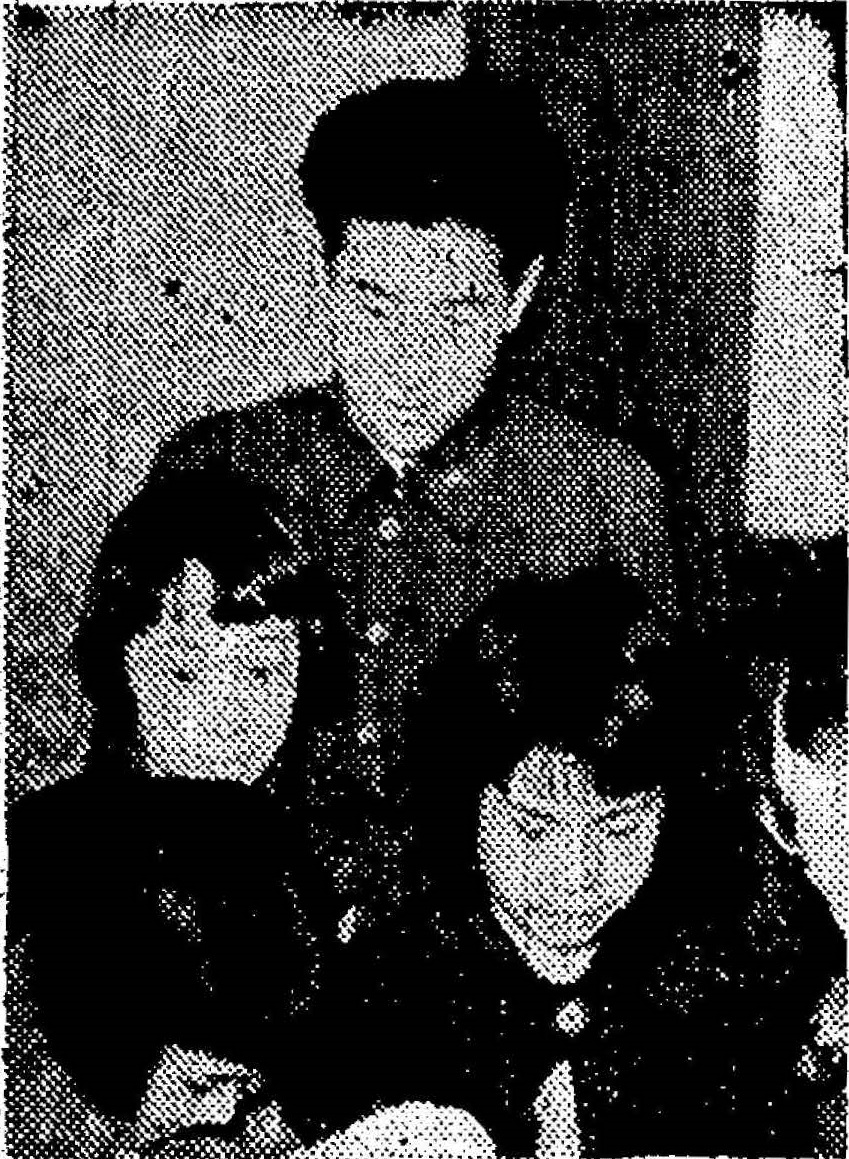
A tour of Sinuiju Yamato Imperial Boarding School in 1942, where Korean nationalism was considered a moral defect to be ‘purified’ away so that Korean ‘thought criminals’ become ‘completely Japanese’
2023-11-07
586
3840
In June 1942, a magazine called “Chōsen” (Korea) published an article that offers a stark window into a grim chapter of Korean colonial history. This publication, an organ of the Imperial Japanese colonial regime which controlled Korea from 1905 until the end of World War II in 1945, documented the workings of a Yamato Imperial Boarding School located in Sinuiju.

The purpose of this institution was as unsettling as it was clear: to forcibly re-educate Korean youth who had been accused and convicted of ideological crimes—such as supporting communism or the Korean independence movement—and reshape them into “pure and loyal” subjects of the Japanese Empire. The process, euphemistically referred to as “purifying” their thoughts, sought to strip these young Koreans of their identity and beliefs, effectively “Japanizing” them completely.
Imagine being a young Korean, merely expressing favorable opinions about communist ideology or the dream of an independent Korea, and as a consequence, finding yourself ensnared by the authorities and sent to such a school for “re-education.”
The Yamato Imperial Boarding School was not an isolated case; rather, it was part of a broader, sinister network of institutions aimed at eroding Korean ethnic and national identity. Its existence and mission bear a disturbing resemblance to the American Indian boarding schools in the United States and Canada, which were designed with the intent to “civilize” or assimilate Native American children into Anglo-American culture.
The comparison is not merely symbolic. If these Japanese-run boarding schools were anything like their American counterparts, it is likely that the Korean students endured not only cultural erasure but also physical, psychological, and possibly sexual abuse. The legacy of such institutions is a deep-seated, intergenerational trauma—a trauma still acutely felt by Native American communities today as a result of their own parallel experiences.
It is with a heavy heart that I have transcribed and translated this article, and now I post it here for wider access. I believe that it is crucial that such narratives are brought to light, as awareness is a pivotal step towards acknowledgment, reconciliation, and healing for the descendants of those who suffered under such oppressive colonial regimes.
[Translation]
Chōsen (Korea) Magazine, June Edition, Volume 325
Published on June 1, 1942
Published by Korea Governor-General’s Office, Chief Cabinet Secretary
Visit to the Sinuiju Yamato Imperial Boarding School
By Okinaka Morio
After my visit to the Yonghung Reformatory, I left Wonsan and took the train on the Pyeongwon Line to visit the Yamato Boarding School in Sinuiju. The Pyeongwon Line had only recently been completed, and there were very many passengers on board. It must be providing significant benefits, both tangible and intangible, to the residents living along the line.
I arrived in Sinuiju just past 3 am. Barely taking any time to rest at the inn, I hurriedly drove to the Yamato Boarding School located in West Majeon-dong, arriving by 8 am. Leaving the station to the left and climbing up the hill, I could see the school on the right. Entering through the main gate, the first thing that caught my eye was a Shinto shrine on the right side. Unfortunately, Mr. Takemura, the guardian, was in the middle of teaching calisthenics to the students in the playground, but he asked someone else to invite me to the guardian’s residence.

The founding mission and activities of the Yamato Boarding School have been extensively introduced in the October 1941 issue of this magazine by Mr. Takahara Katsumi, who is affiliated with the current Probation Division. Therefore, I will only briefly mention them here. Namely, the Yamato Boarding School is an incorporated organization with the aim of invigorating the spirit of the Imperial Way and deepening a thorough Japanese-Korean Unification, as well as guiding and protecting those involved in ideologically related incidents. Its members include those who are under protective observation and those who agree with the purpose of the Yamato Boarding School and wish to serve and cooperate in its activities, with the head of the protective observation office serving as its chairman.
Thus explained Mr. Takemura, the guardian, with a passionate tone. I felt the fervor that he had for his work.
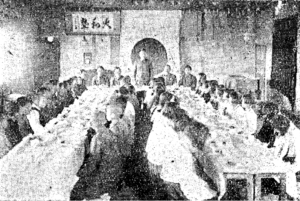
Currently, the school has taken in students from eleven families. These students were once questioned for their ideologically related incidents, and at the time of their enrollment, they were all quite stubborn. In other words, they could be described as politically the most extreme right-wingers among those currently under protective observation. The aim is to convert these individuals into pure and loyal subjects of the Imperial Japanese nation. Let us introduce one of them here.
Though he has since adopted a Japanese surname, let us refer to him as Mr. T. Mr. T dropped out of Meiji University and was extremely obstinate from the beginning of his time at this school. He would not even speak to Mr. Takemura. This silent treatment continued for about two weeks. During this time, the guardian shared baths and meals with Mr. T, naturally inviting him into his own life. They even sat face to face at the guardian’s house late into the night. The guardian’s warm and humane treatment eventually touched a chord in the depths of Mr. T’s being. Their souls collided. There was no petty nationalistic notion of Korean or Japanese. What existed was the stark reality of one human being to another. Formally speaking, the unification of Korea and Japan had already borne fruit.
However, I believe there is something in this case that cannot be fully expressed by that phrase. There is something deeper. It reminds me of Kikuchi Kan‘s “Beyond the Pale of Vengeance.” While the content of the two differs greatly, I believe the exalted way in which the two souls ultimately touch each other is the same. Mr. T has completely converted, washing away his stubborn old ideologies, and now stands at the school’s podium teaching the children.
Here, let us discuss the educational facilities of the school. Upon examining the primary objectives of Yamato School’s practice, it is clear that the emphasis is on reinforcing and thoroughly implementing Japanese-Korean Unification, and for this purpose, the “spread of the Japanese language” is considered a critical issue to which considerable effort is being devoted. Namely, the school has established two 20-tsubo (66 square meter) classrooms and conducts Japanese language training sessions twice a day, both day and night. Although the courses are designed to be completed in roughly two years, within this short period, all twelve volumes of the elementary school reading books are to be finished. The intention is to attain six years’ worth of proficiency in two years.
Besides the Japanese language, arithmetic, crafts, singing, and games are also taught. No tuition fees are charged. Educational materials are either provided or loaned. Generally, those who could not enter elementary schools are accepted, and there are cases where students who have completed the two-year program at Yamato School have been certified to enter the fifth year of elementary school. It is said that the joy of the parents at such times was considerable.
Combining day and night sessions, the number of children reaches a total of 660. The teachers are students themselves and work without pay.
Moreover, the teachers do not merely teach the Japanese language. They stand at the podium imbued with enthusiasm to infuse the students with the Japanese spirit. I do not have experience in teaching, so I cannot understand that sentiment. However, once one stands at the podium and takes the position of guiding innocent boys and girls, anyone would wish for their intellectual improvement. Watching the young boys and girls improve day by day, one would undoubtedly feel a great sense of joy. Those who are students of the school must be experiencing one of what Mencius called the “three joys in life” and would surely be reflecting on themselves.
Therefore, the concern that the teachers might instill bad ideologies in the children was entirely unfounded. Furthermore, by standing at the podium, they further their own devotion to becoming Imperial subjects.
Guided by Mr. Takemura, the guardian, I observed the classes. In the first classroom, it was time for arithmetic, but I remember thinking that they must have been singing, as the children’s voices were so loud that my ears almost went deaf, a memory that still comes to me sometimes.
The second classroom featured Mr. T’s class, where, as it seemed appropriate for beginners, he was earnestly teaching how to count numbers. I was surprised by the overall liveliness of the children here; they were very spirited.
I was also shown a dance by the female students. They danced delicately to the rhythm of a phonograph, holding small flags in both hands, performing pieces like “March of the Beloved Horses,” “Raising the Flags of Three Countries,” “Patriotic March,” and “Neighborhood Cell.” I am not particularly discerning when it comes to this art form. However, I was impressed enough to think that if they were dressed in beautiful costumes and performed on a real stage, they would stand out even more, so I believe the reader can imagine the general idea. I could not help but applaud.
Now, changing the topic of discussion, I have to delve into how the students were being guided. There is absolutely no theoretical reasoning here. It is all about action. Theoretical disputes will always develop into more theoretical disputes. Even if one were to convince the other side, something unsatisfactory would remain. The main thing is to convert them into Imperial subjects. It is said that many of the Korean compatriots who turned to communism or nationalistic ideologies did so based on emotion. If that is indeed the case, trying to use theoretical reasoning to convert someone who was sparked by emotion would be an unreasonable demand. Therefore, the motto here is to start from the emotional life and let them grasp the Japanese spirit.
The students from the eleven families live together in row houses adjacent to the residence of Mr. Takemura, the guardian. In other words, they understand each other through daily life and are instilled with a spirit of hard work and affection. They are even trained to do tasks as humble as cleaning the toilets, and are trained to obey the orders of those above them without question. Criticism is not at all tolerated. There is something reminiscent of military order in this. It is curious that orders are accepted without complaint, likely a result of their genuine respect for the guardian.
Next, let us touch upon one of the important enterprises of Yamato School, which is the occupational project. This project, which involves an investment of 30,000 yen in the manufacturing and sales of lunch boxes and disposable chopsticks, has its factory adjacent to the classrooms. The livelihood of the students is entirely dependent on this, with the raw material, Hondo spruce, being kindly provided by the Sinuiju Forestry Office. It is said to be an impressive achievement that in just about a year since the start of the project, a profit of 10,000 yen was made. Orders seem to be flooding in continuously. Consequently, the average monthly income per student household reaches ninety to a hundred yen, indicating a very comfortable economic life.

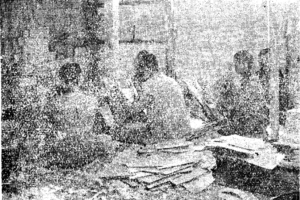
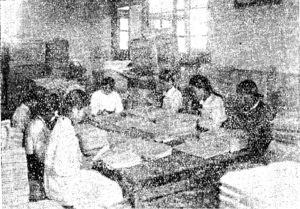
The students, who might once have believed in Marx’s so-called historical materialism, are now managing the industrial department themselves, and it would be interesting to know what economic theories they hold now. “When basic needs are met, one understands propriety” – the facilities of Yamato School’s Industrial Department play a significant role in purifying the thoughts of the students, a point that cannot be overlooked. This facility is not only a characteristic of Yamato School but also its considerable strength. By generating profits through their own management and using those profits to educate these impoverished Korean compatriots, there is no capitalist mechanism at work. What exists is solely the enthusiastic desire to improve each other’s lives materially and spiritually. Any student who is not moved by this must be out of sorts. It is said that the students would go so far as to lay down their lives for Mr. Takemura, and this is believed to be their sincere sentiment.
Moreover, Mrs. Takemura, the wife of the guardian, is working with the wives of the students, primarily directing the management of home economics. She kindly teaches them not only how to keep a household account book but also the finer points of home economics, instilling in them the fundamental concept of “managing a household.” In short, Sinuiju Yamato School could be said to be promoting a sort of large family communal living.
On the day of my visit, it happened to be the Day of the Imperial Rescript, and Mr. Seiichi Tanaka, the Director of Sinuiju Protective Observation, visited the school, and an Imperial Rescript acceptance ceremony was conducted on the sports field. All the “daytime students” were lined up in front of a Shinto shrine, and after Director Tanaka’s reading of the Rescript and instruction, a student representative stepped forward to lead the Imperial Japanese Vow.
Although his body was quite small, he mustered a strong voice while tensing his throat, resembling a chick imitating a mother hen. After the ceremony, Director Tanaka commented to me, “They are energetic children, aren’t they?”
When I said that I arrived in Sinuiju past 3 this morning, I was told that it was a pity because the students had their military training starting at 6 this morning, and they would have liked for me to see it. I heard that Director Tanaka stayed overnight at Yamato School and participated in the military training and that he came to the school specifically for the twice-daily Kyūjō Yōhai worship ritual today. He seems to be very busy indeed. However, he appeared to be very interested and cheerful about the work of the school. The director’s enthusiasm must surely inspire those below him and will likely greatly influence the school’s performance. Tomorrow, there is to be an entrance ceremony at the home economics school in Yongampo. I have decided to accompany them.
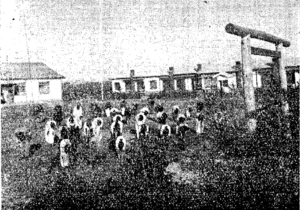
I took advantage of Guardian Takemura’s generous offer and stayed overnight at the schoolhouse. The next morning, I woke up just past six and, together with all the student families, we received the morning’s spiritual energy with all of our bodies and performed the Kyūjō Yōhai. After the worship ritual, Mr. T and another student reported to the guardian in a loud, clear military style about the previous day’s events. This was followed by radio calisthenics. The school’s day began vigorously from this point. People were already starting to gather at the factory.
I suddenly think that behind this ideological protection endeavor, laden with extraordinary hardships, lies great joy and comfort in the possibility of creating capable individuals once they have been converted.
The general public understands the work of Yamato Schools and provides considerable support both materially and spiritually, and I celebrate the promising future that lies ahead.
Furthermore, after returning home, I visited the Yamato School in Seoul but regret to say that due to editorial circumstances, I could not feature it in this month’s issue. I ask for Guardian Saiga’s understanding in this matter.
***Yamato Home Economics School
For the visit to the Yamato Home Economics School, a branch of the Yamato School in Yongampo, I bid farewell to Mr. Takemura, the guardian, and his wife and hurried to Sinuiju station. At the station, I met up with Director Tanaka and Mr. Mori from the observation office, and we boarded the train for Yongampo. Director Tanaka introduced me to Mr. Kihara Mikawa, who not only holds the title of a member of North Pyongan Province assembly but also a consigned guardian. Mr. Kihara lives in Yongampo and had gone out of his way to welcome the director. He is very supportive of the Yamato School’s endeavors, especially in promoting the development of the Home Economics School.
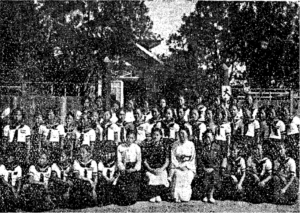
In the train, I saw many of the Home Economics School students dressed in sailor uniforms. Director Tanaka seemed to enjoy talking and giving various instructions to these young women. The students must be very dear to him.
It took about an hour to reach Yongampo station, and after walking for a bit over twenty minutes, we entered the gates of the Home Economics School. The school is housed in a purely Japanese-style building of about 50-tsubo (165 square meters), situated on a 400-tsubo (1322 square meter) plot, which Mr. Kihara has lent free of charge. It seems to be a calm and somewhat old building. There are plans for a new building in an appropriate location in the future.
We were led to a guest room where the students served us tea in the Ogasawara style or something similar. The students are female graduates of the elementary schools from the Korean peninsula, and while 45 of them entered the school on July 1 last year, today an additional 40 or so will join. The training lasts one year, but those with excellent graduation results have the opportunity to stay on for further study in the research department. Four mainland Japanese women from good families, qualified as girls’ school instructors, serve as full-time lecturers, teaching Japanese womanhood, Japanese language and manners, sewing, cooking, calisthenics, ikebana flower arrangement, tea ceremony, calligraphy, childcare and hygiene, and music for 31 hours each week. In addition, observation office staff and affiliated guardians also take part in teaching some of the classes.
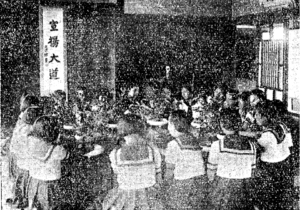
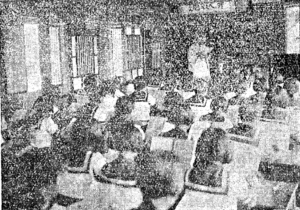
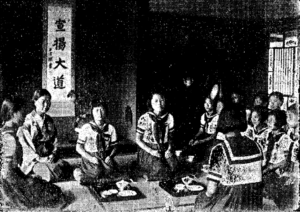
The Home Economics School aims to instill in the students a purely Japanese lifestyle and naturally lead them to Japanese ways of thinking and perspectives.
Indeed, we were treated to a lunch prepared by the students, and the way the meal was served, the serving methods, were all exactly like a Japanese household, to the point that we, the guests, were rather the ones who felt out of place.
At 1:30 in the afternoon, the entrance ceremony for new students took place at the martial arts dōjō across from the Yongampo police station. Parents and families were present. During the congratulatory speech by Mr. Kihara from the provincial assembly, he advised the students to adopt purely Japanese behaviors and living actions, truly demonstrating the essence of the Home Economics School. Perhaps because of the small number of students, the entrance ceremony had a warm atmosphere.
With the visit to the Yamato Home Economics School, my busy schedule came to an end, but next, I would like to write down a few thoughts and impressions about the Home Economics School.
***Conclusion
I hope that my account gives you a better understanding of the operations of the Yamato School in Sinuiju, but the establishment of the Yamato Home Economics School should be considered one of the most meaningful aspects of these operations. The deepening of the Japanese-Korean Unification movement will not bear fruitful results without the understanding of women, who make up half of the total population. It is particularly meaningful to target young girls who will become homemakers in the future. It is noteworthy that two hours of class time are devoted to Japanese womanhood. Additionally, a greater number of hours are allocated to various subjects for acquiring Japanese cultural education than those at higher girls’ schools, and attention is also paid to cultivating sensibilities. We also cannot overlook that they are placing particular emphasis on moral and artistic values. Furthermore, through four hours dedicated to “manners,” the school aims to instill a sense of Japanese propriety and the concept of Japanese beauty.
Originally, manners and etiquette are understood as the human cultural progression where the desire for beauty and harmony in daily life is organized over time. Therefore, living and acting according to the principles of manners and etiquette is the most beautiful and harmonious for both individuals and society, making our lives preferable, beautiful, and happy. The essence of propriety is said to respect harmony, aiming for people to live in smooth coordination and to be personable. Hence, Korean women must deeply appreciate the pinnacle of Japanese beauty through the mastery of manners and etiquette, as a prerequisite to becoming completely Japanese. By achieving this, there will no longer be any distinction between Japanese and Koreans. The Home Economics School is advancing with this policy.
In manners, there are undoubtedly both formal elements and spiritual aspects. At the Home Economics School, the formal elements are introduced first. Since the heart of manners and etiquette lies in the spiritual aspect, I believe that warm consideration is already being given to this area.
Moreover, the students of the school were sent to good households in mainland Japan for about a month to learn manners and help out, and they were reportedly very well received by each household. The Home Economics School may only be a modest existence now and has no history or tradition as it is still in its infancy. However, I have no doubt that it will play a significant role in the movement to turn Korean women into loyal subjects of the empire in the future of our Korea.
We look forward to the day when “a grain of wheat” will gradually mature and contribute to society, and when many young girls from the Korean peninsula will aspire to the school spirit of the Home Economics School. May this not end as a mere fool’s dream.
[Transcription]
朝鮮 六月号 第三百二十五号
昭和十七年六月一日発行
発行人:朝鮮総督府総督官房文書課長
新義州大和塾訪問記
沖中守夫
永興感化院の訪問を終えた私は、新義州の大和塾を訪れるため、平元線を利用して元山を発った。平元線はつい最近全通を見たのであるが、利用者は非常に多い。有形、無形に沿線住民に大なる利便を与えていることであろう。
新義州には夜半の三時過ぎについた。宿屋にまどろむ間もなく、八時には西麻田洞にある大和塾に車を飛ばした。駅を左に見て坂道を上りつめ左右を見渡せば、右方にそれらしきものがあった。正門を這入って右手に神祠が祀られてあるのが先ず眼につく。折悪しく竹村保護司は運動場で生徒に体操を教えていたところであったが、代りを頼まれて私を保護司住宅に招じた。
大和塾の設立の趣旨や、その活動状況に就いては本誌十六年十月号に現保護課属高原克己氏より詳細に亙って紹介されているので、茲では簡単にその内容を述べることとする。即ち、大和塾は保護観察所長を会長に、保護観察対象者や大和塾の趣旨に賛同し、その事業に奉仕協力せんとするものを会員とするものであって、皇道精神の振起昂揚と内鮮一体の深化徹底を期し、併せて思想事件関係者を善導保護することを目的としている法人組織である。そして、その事業としては、思想前歴者を動員して主として国語の普及授産の経営に意を注いでいる。
かようなことを熱意のこもった語調で竹村保護司は語られる。仕事に対してなかなか熱のある人だと感ずる。
現在、塾生を十一家族入れている。この塾生は、かつては思想事件に問われた者で、入塾当初はなかなか手剛い者ばかりだったそうである。別言すれば保護観察対象者の最右翼級といってよかろう。この人々を転向さして純良な皇国臣民化しようというのである。そのうちの一人をここに紹介してみよう。
今は創氏しているが仮にT君として置こう。T君は明大中途退学者で入塾のはじめから、実に頑固だったそうだ。竹村保護司とも、全然口をきこうとしない。約二週間位、無言の行がつづいた。その間、保護司はT君と一所に風呂には入ったり、食事を共にしたりしてT君を自分の生活のなかに自然に溶け込ますように努めた。そして時には深更まで保護司宅で対坐したこともあった。保護司のかような人情味豊かな処遇はT君をしてついに人間の奥底に秘められた琴線にふれしめるに至った。魂と魂とがぶっつかった。そこには、朝鮮人とか内地人とかいうケチ臭い民族的観念はなかった。在るものは赤裸々の一個の人間対人間の存在のみである。形式的にいえば、内鮮一体はすでに実を結んだということができよう。
だが、私はこの場合、その表現では云いつくせない或るものがある。もっともっと奥深いものがある。私はかつて読んだ菊池寛氏作の『恩讐の彼方へ』を思い出す。両者の内容は勿論大いにちがっている。だが、最後に魂と魂とが触れ合うその極致は一致しているのではないかと思う。T君は完全に転向し、むかしのかたくな思想を綺麗に洗い落としてしまった。そして今では塾の教壇に立って児童を教えている。
ここで塾の教育施設について述べて見る。大和塾の実践第一要項を見るに、それは内鮮一体の強化徹底に置き、そのためには『国語の普及』が先決問題であるとして、これには大いに力瘤を入れている。即ち、塾に二十坪の教場二室を設け、昼夜二回にわたって国語講習会を開いているのである。大体二箇年で終了することになっているが、この僅かの期間で、国民学校用読本十二巻全部を終るのである。二箇年で六箇年の実力をつけようというわけだ。
国語の外になお、算術、手工、唱歌、遊戯なども教えている。授業料は一切とらない。そして学用品はすべて支給したり或は貸与したりしている。大体、国民学校に入学できなっかったものをとっているが、なかには大和塾で二箇年の過程を終り、国民学校の五年に検定編入されたものもある。このときの親の喜び方は大したものであったそうだ。
昼と夜とを合わせて児童は六百六十名の多数にのぼっている。教師は塾生で無報酬である。
そして教師は単に国語を教えるだけではなく国語に盛られた、日本精神を注ぎ込む意気で教壇に立っている。私は訓導の経験がないからその気持ちはわからぬ。だが、一旦、教壇に立って無垢の少年、少女を指導する立場になったら、だれでも彼等の智識の向上を願うであろう。日に日に向上して行く少年少女を眺めて、心中大いに愉悦を感ずるであろう。塾生たるもの孟子の所謂三楽の一を経験して、たしかに自己を反省してみるにちがいない。
だから児童に対し悪い思想を注ぎ込むということは全く杞憂に過ぎなかったのである。その上彼等は教壇に立つことによって、自分自身の皇民化に一層の精進を加えるのである。
私は竹村保護司に案内されて、授業の参観をする。第一室では丁度算術の時間であった。が、その教室では、何んでも唱歌を歌っていただいた様に思う。児童の声の余りに大きいので耳が聾になりそうだったのを今でも時々思い出すのである。
第二室はT君の授業であった。初学年らしく数の数え方を熱心に教えていた。概してここの児童の元気なのには驚いた。なかなかきびきびしている。
私は、また女生徒の舞踊を見せて貰った。蓄音器のリズムに合わせ小旗を両手にもって「愛馬行進曲」「三国旗かざして」「愛国行進曲」「隣組」などをいと優しくも踊るのである。私はこの方面に対する眼は余り肥えていない。だが、綺麗な衣裳でもつけさせてどこかの本舞台で実演さしたら、一層引き立つだろうなあと感心した位だから、読者には大体の想像はつくと思う。私は思わず拍手を送った。
さて、話しの方向を変えて、塾生たちを如何に指導しているかを私は突っ込んで聞かねばならぬ。ここでは理論闘争は全然行わない。「行」一天張りである。理論闘争は何処までも理論闘争に発展するであろう。よしこちらが相手を説伏し得たとしても、そこには何か割り切れないものが残るであろう。要は相手を皇国臣民化せばいいのだ。朝鮮同胞は共産主義、或は民族主義的思想に走った主たる原因は感情に出発しているものが多いということだ。果して然らば感情から出発した者を理論闘争によって転向させようとしても、それは無理な注文だ。だからここでは「情」の生活より出発しつつ、日本精神を把握させることをモットーとする。
十一家族の塾生は竹村保護司の住宅と隣り合って長屋に起居を共にするのである。つまり日常生活を通じてお互いが理解し合うのである。そして勤労好愛の精神を植えつける。時には便所の掃除までさせる。上に立つ人の命令には絶対に服従させるよう訓練される。批判は全然評されない。どこか軍隊式に似たところがある。それでいて命令は文句なしに受け入れられているから不思議だ。保護司に心服している結果からであろう。
次に大和塾の重要事業の一である授産業にふれて見よう。これは資金三万円を投ぜる折箱、割り箸の製造販売事業で工場は教室に隣接している。塾生の生活の資は全部これに依って賄われ、原料である唐檜は新義州営林署の好意によって払下げをうけている。事業開始より僅か一年そこそこで一万円の収益をあげたというから素晴らしい成績といってよかろう。注文は次から次へと殺到して来るそうだ。従って塾生各家族一戸当り月収平均は九十円から百円にも達し、経済生活は非常にゆとりを持っている。
かつてはマルクスの所謂唯物史観的人生観を信奉していたかも知れない塾生諸君も、産業部の経営実体も自ら管掌するに至って、果して現在どんな経済理論を把持しているであろうか。「衣食足りて礼節を知る」はこれ人情、塾生の思想淳化に大和塾産業部の施設が大いに役立っていることを見逃すことはできない。この施設は大和塾の特色であると共に、また、大なる強味でないかと思う。自己の経営によって利潤をあげ、その利潤によって貧しき朝鮮同胞を教育する。そこには資本主義的なカラクリは全く存在しない。存在するものは、お互いの物質的にも精神的にもその生活を向上させんとする熱意あるのみだ。これで感激しない塾生はどうかしている。宜なる哉、竹村保護司の為には命を投げ出すとまで塾生は考えている由だが、打ち割ったところ偽りない心根であろう。
尚は、保護司夫人は塾生の主婦に働きかけ、専ら台所経済の指導に当って居られる。家計簿の記入は勿論のこと、その他こまかい家庭経済についても親切に教導し、所謂「家を治める」根本観念を植えつけている。要するに新義州大和塾はいわば大家族主義生活といってよかろう。
私が尋ねた常日は、丁度大詔奉戴日だったので、新義州保護観察所長田中誠一氏が来塾され、大詔奉戴式が運動場で挙行された。神祠を前にして「昼間生徒」は全部整列し、田中所長の詔書奉読、訓示があって、一人の生徒代表が所長の前に進み出て皇国臣民誓詞を先唱する。
からだは頗る小さいのだが、喉筋を立てながら大きな声をしぼり出すのである。雛が親鶏の真似をしているようだ。式後「元気な子供ですよ」と田中所長が教えて呉れる。
「今朝三時過ぎ新義州に着きました」と私がいうと、それは惜しいことをした、今朝六時から塾生たちの軍事教練があったが、それを見て頂きたかったといわれる。聞けば田中所長は昨晩大和塾に宿泊されて軍事教練に参加し、今日は昼夜二回の奉戴式にわざわざ来塾され挙式に当られるのだそうだ。実に御多忙の様である。だが、塾の仕事に非常に興味を持っていられるようで頗る朗らかである。所長がかように熱心なため、下の人々も力の入れ甲斐があることと思う塾の成績にも大いに影響することであろう。明日は龍岩浦にある家政塾の入塾式を挙行する由である。私も御供することにする。
竹村保護司の御厚意に甘えて塾舎に一泊する。翌朝は六時過ぎ起き、塾生全家族と一所に朝の霊気を全身にうけ宮城遥拝をする。遥拝後T君と今一人の塾生が、昨日中の出来ごとを軍隊式に大きなキビキビした声で一々保護司に報告する。終ってラジオ体操である。塾の一日の生活はこれから活発に初まる。すでに工場にはボツボツ人が集まり出した。
私は、ふと、竝々ならぬ苦労を荷うこの思想保護事業の反面には、転向させ得たら有能な人士をつくり出せるという、大きな歓喜と慰安とがあることを思う。
社会一般は大和塾の事業を理解して、物的にも心的にも多大の援助を与えていること知ってその前途の多幸を祝するものである。
尚、帰住後、京城大和塾を参観したのだが、編輯の都合で、本月号に掲載することの出来なかったのを遺憾とする。この点斎賀保護司の御諒承を願う次第である。
大和家政塾
大和塾の龍岩浦支部の事業となっている大和家政塾参観のため私は竹村保護司夫妻に御別れをし新義州駅に急いだ。駅で田中所長、森観察所書紀両氏と落ち合い、龍岩浦行きに乗る。田中所長より平北道会議員と嘱託保護司の肩書をもたえる黄原観河氏を紹介される氏は龍岩浦に居住しているが、わざわざ観察所長を迎えに来られたとか。大和塾の事業には非常な腰の入れ方で特に家政塾の発展の為には声援を惜しまない方である。
車中には、大分、水兵服姿の家政塾生たちが乗車していた。田中所長はその乙女たちと愉快そうに話し合ったり、或はいろいろ注意したりしている。所長には、塾生がとても可愛いのであろう。
約一時間にして龍岩浦駅に降り、歩くこと二十分余りで家政塾の門をくぐった。同塾は建坪約五十坪、敷地四百坪の純内地式建物を黄原観河氏から無償で貸与をうけ、これを使用している。落ちついた感じのする建物だが相当古い代物らしい。何れ適当なところに新築は予定されている。
私共は客間に道され、塾生から小笠原流か何かの式でお茶を出される。塾生は国民学校卒業の半島の女子で去年の七月一日に四十五名入塾さしているが、今日また四十余名入塾することになっている。修業年限は一ヶ年であるが、卒業成績の優秀なものは研究科に残る道が開かれている。専任講師としては女学校教諭の資格ある良家の内地入のお嬢さん四人がこれに当り、日本婦道、国語作法、裁縫、割烹、体操、生花及茶、書道、育児衛生、音楽の諸科目を毎週三十一時間教えている。尚、観察所職員、嘱託保護司の方々も、授業の一部を受け持たれる。
家政塾は純日本人的生活様式を塾生の頭にしみ込ませ、それから自然に日本人的な物の考え方や観方にもって来ようというのである。
成る程、塾生の手になる昼飯を御馳走になったが、御膳の出し方、給仕のし方など、全く日本人の家庭そのままで、お客さん私共の方がかえって無作法ぐらいであった。
午後一時半から筋向いの龍岩浦警察署の武道場で新入生の入塾式が挙行された。父兄の顔も見える。黄原道会議員の祝辞中、起居動作すべて純日本人的になって貰いたいと諭すあたり家政塾たる本領を発揮して余蘊がない。生徒数の少ないせいか、どこか温味のこもった入塾式であった。
大和家政塾の訪問で、私のあわただしい日程は終了したわけだが、次に結論として家政塾に対する二三の感想を書かして頂く。
結語
新義州大和塾の事業については、如上述べたところで大体お判りのことと思うが、その事業の一である大和家政塾の開設は、最も意義あるものの一つというべきであろう。内鮮一体深化運動も全人口半ばを占める婦人の理解がなければ美しい実は結ばない。特に将来家庭の人となる少女達を対象とした所に大いなる意義を見出す。授業科目のうちで、日本婦道について二時間を割いていることは注目してよかろう。その他日本人的教養を身につける為の諸科目が、高等女学校のそれよりも多数の時間が割り当てられている。と共に情操の涵養に意を用いていることもて逃せない。そしてまた「作法」の四時間によって日本人的床しさとか、或は日本的美の観念を植えつけようとする。
元来、礼儀とか作法とかは、人間が美を要求し、調和に憧れる心的作用が、日頃の生活に現れて、これが人間文化の進展に伴って漸次に組織されたものと解する。だから礼儀や作法の趣旨に従って生活し、行動することが、個人的にも、社会的にも最も美であり調和であって、私共の生活をして最も好ましく美わしく、且つ幸福ならしめるものだ。礼法の要は和を尊しとすといわれている。故に人々がよく調和して、人生を円滑にし人に好感を与えることが眼目であろう。したがって朝鮮女性が、日本人になり切る前提としては礼儀作法の修得によって日本的美の極致を心奥深く味わなねばならない。これを感得することによってそこにはすでに内鮮人の区別は存をしないであろう。家政塾はこの方針で進んでいるのである。
作法には、云うまでもなく、形式的要素と、精神的方面との二つがあるが、家政塾では先ず形式的要素の方らは入っている。礼儀作法の中心は精神的方面にあるのであるから、この方面に対し関係方面の暖かい心配りもすでになされていることと思う。
尚、ここの塾生を内地人の良家庭に約一箇月間行儀見習や手伝いに出したそうであるが、各家庭から大変喜ばれたとのことである。家政塾は、今では微々たる存在に過ぎぬであろう。そしてまた創設草創の事であるから歴史も伝統も何もない。だが、将来我が朝鮮に於いて半島女性の皇国臣民化運動に相当な役割を演ずることを信じて疑わない。
「一粒の麥」が次第に稔って社会に貢献することを私共は期待すると共に、古来塾には塾風あり、家政塾の塾風を慕って半島の乙女達が数多馳参ずる日の近からんことをお祈りする。願くば痴人の夢に終らしむること勿れ。
- 第一図:大和塾全景
- 第二図:神祠
- 第三図:卒業式、壇上は田中保護観察所長
- 第四図:児童と卓を囲んで立ってるは竹村保護司
- 第五図:授産業の状況(一)
- 第六図:授産業の状況(二)
- 第七図:授産業の状況(三)
- 第八図:授産業の状況(四)
- 第九図:塾生及び家族の宮城遥拝
- 第十図:大和家政塾の講師と生徒一同
- 第十一図:生花の授業
- 第十二図:国語の授業
- 第十三図:作法の授業
Source: https://archive.org/details/chosen-v44-1942/page/n410/mode/1up
See also:
- Internment camps for young Korean schoolgirls (Link)
- Workplace training making employees run until they collapse from heat exhaustion (Link)
- Yuseong Farmers’ training camp to train rural leaders (Link)
- Imperial Way Training Institutes (Link)
- Converted Korean ‘ideological criminals’ at Yamato School in Seoul (Link)
- Imperial Japanese penal officials brag about brainwashing Korean ‘ideological criminals’ in Yamato Schools (Link)
*Many thanks to an anonymous supporter who provided me with a copy of this colonial-era magazine.
